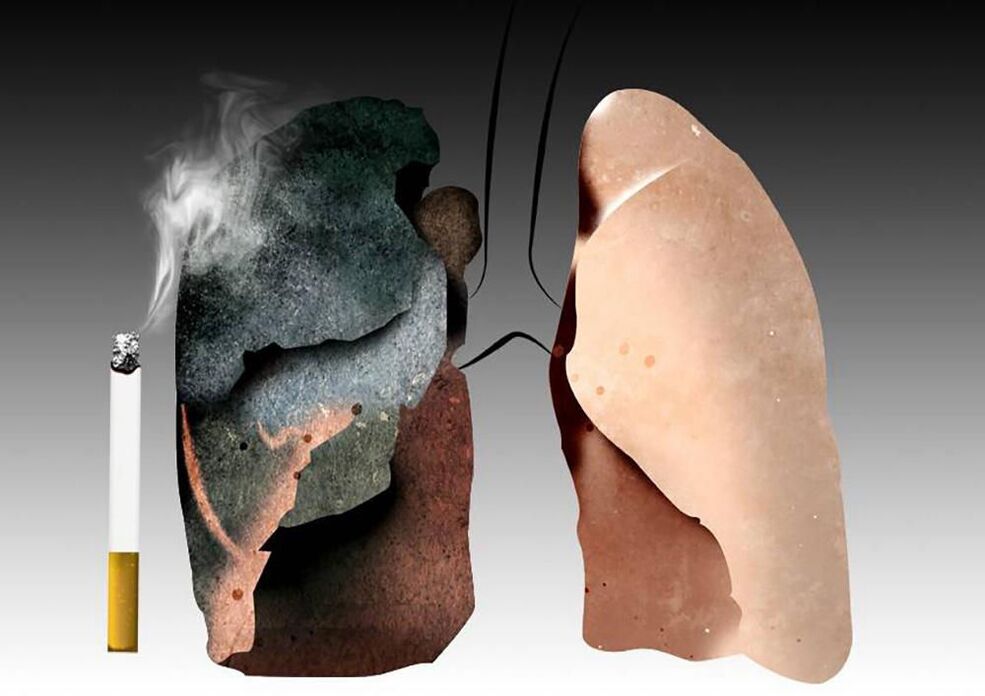
Exposure to cigarette smoke
Effects of active smoking on the trachea and larynx
Effect on bronchial tubes
Characteristics of respiratory diseases in smokers
- Sinusitis is an inflammatory process of the sinus mucosa;
- Sinusitis - inflammation of the maxillary sinuses;
- Rhinitis - inflammation of the nasal mucosa;
- Degeneration of the sense of smell - occurs due to damage to the receptors;
- Laryngitis, tracheitis - inflammation of the larynx and trachea.
- Pleurisy – inflammation of the serous membranes of the lungs;
- Pneumonia is a viral disease that affects lung tissue and alveoli;
- Tuberculosis is an infectious disease that usually occurs when immunity is compromised;
- Pulmonary sclerosis - an inflammatory process accompanied by the replacement of lung tissue by connective tissue incapable of air exchange;
- Lung abscess - inflammation of the lung tissue that releases pus, which can lead to tissue death;
- Lung failure - characterized by a severe drop in oxygen levels in the blood;
- emphysema;
- chronic obstructive pulmonary disease;
- Lung cancer.
What are the causes of breathing problems?
Characteristics of bronchitis in smokers
- Cough attacks in the morning;
- Difficulty breathing;
- Signs of chronic hypoxia (headache, dizziness, nausea, increased excitability, cardiac arrhythmia, pale skin).
Breathing Problems in Former Smokers
Withdrawal symptoms
- weakness, fatigue;
- Headache;
- Appetite disorders;
- nausea;
- cough;
- Arrhythmia;
- disruption of the gastrointestinal tract;
- Pressure changes.
treatment method
drug
- expectorant;
- herbal sedative to reduce nervousness and irritability (motherwort);
- Nicotine replacement medicines - Reduce cravings for cigarettes.
physiotherapy
- massage therapy;
- electrophoresis;
- UV exposure in the interscapular and collar areas;
- Ultra high frequency therapy.























